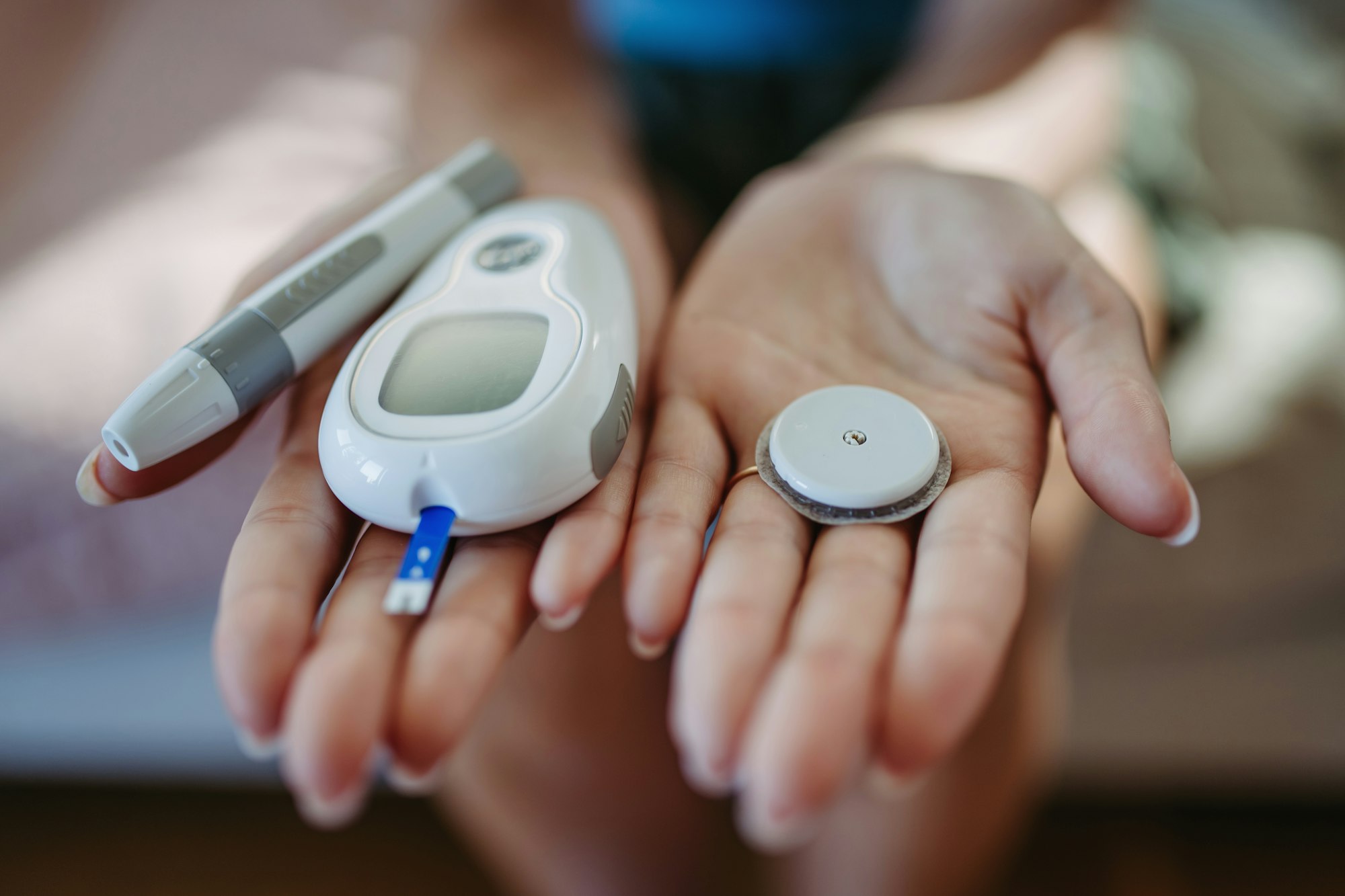What Diabetic Supplies Are Covered By Medicare Part B?
Medicare Part B offers coverage for certain diabetic supplies, helping beneficiaries better manage their condition and maintain their quality of life. In this article, we will explore the different diabetic supplies covered by Medicare Part B, the eligibility criteria, and how to access these essential items. Discover what diabetic supplies are covered by medicare part B. Explore Medicare diabetic supplies and Medicare diabetic coverage. let’s dive into it.
What Medicare Part B Covers for Diabetic Supplies
Medicare Part B covers a variety of diabetic supplies that are essential for managing diabetes. This coverage includes blood glucose monitors, blood sugar test strips, lancets, and glucose control solutions. These supplies are vital for individuals with diabetes as they enable regular monitoring of blood sugar levels and provide valuable information for self-management and medical professionals.
Medicare Part B also covers insulin pumps and insulin under certain conditions. Medicare Part B provides coverage for the pump and its supplies, including the insulin used with the pump. However, coverage for insulin delivered through injections generally falls under Medicare Part D, which is the prescription drug coverage. It is essential to note that there may be specific requirements and criteria to meet for Medicare Part B coverage of insulin pumps.
A Comprehensive Guide to Understanding Coverage Limits and Eligibility
Medicare Part B coverage comes with certain limits and eligibility criteria when it comes to diabetic supplies. For blood glucose monitors, test strips, and lancets, Medicare Part B typically covers 80% of the cost, with the beneficiary responsible for the remaining 20%. However, it is important to note that deductibles and additional costs may apply.
Generally, beneficiaries must have a diagnosis of diabetes from a healthcare professional and be enrolled in Medicare Part B. Additionally, a prescription from a healthcare provider is often required to demonstrate medical necessity. It is very crucial to consult with healthcare providers and Medicare to understand the specific eligibility criteria and coverage limitations for diabetic supplies.
Medicare Diabetic Coverage: The Basics
Medicare Part B provides coverage for a set of diabetic supplies and services to help beneficiaries manage their condition effectively. These items fall into various categories, each serving a specific purpose in managing diabetes. Let’s break down the key diabetic supplies covered under Medicare Part B.
1.Blood Glucose Monitors
Blood glucose monitors, often referred to as glucometers, are essential tools for people with diabetes to monitor their blood sugar levels. Medicare Part B covers the costs of blood glucose monitors, including the device itself and necessary accessories such as lancets and test strips.
2.Lancets and Test Strips
Lancets and test strips are crucial components of blood glucose monitoring. They allow individuals with diabetes to check their blood sugar levels regularly.
3.Insulin
Medicare Part B also covers insulin for beneficiaries who require it to treat diabetes. The coverage includes both insulin injections and insulin administered via an insulin pump, ensuring that individuals with diabetes can access this life-saving medication.
4.Insulin Pumps
For some individuals with diabetes, insulin pumps are a preferred insulin delivery method. Medicare Part B covers insulin pumps as well as necessary supplies like tubing, batteries, and reservoirs.
5.Therapeutic Shoes and Inserts
Diabetes can lead to foot complications, so Medicare Part B offers coverage for therapeutic shoes and inserts. These specialized footwear items are designed to reduce the risk of foot-related problems in individuals with diabetes.
6.Self-Management Training
Medicare Part B recognizes the importance of education in diabetes self-management. It covers diabetes self-management training (DSMT) for beneficiaries. DSMT includes instruction on how to monitor blood sugar levels, make dietary choices, and manage medications effectively.
Eligibility and Qualification
To access Medicare Part B coverage for diabetic supplies, you must be eligible for Medicare in the first place. Most individuals become eligible at age 65, but younger people with certain disabilities may also qualify. It’s important to note that while diabetic supplies are covered, you may still be responsible for certain out-of-pocket costs, such as deductibles and co-payments.
Accessing Diabetic Supplies
Beneficiaries who meet the eligibility criteria can access diabetic supplies covered by Medicare Part B through a healthcare provider or supplier that participates in the Medicare program. It is crucial to ensure that you receive these supplies from Medicare-approved providers to avoid any unexpected costs.
Benefits and Drawbacks
Benefits:
- Increased Affordability: One of the most significant benefits of Medicare Part B coverage for diabetic supplies is increased affordability. Managing diabetes can be expensive, with costs for blood glucose monitors, test strips, and insulin adding up quickly. Medicare Part B helps to offset some of these costs, making essential supplies more accessible to beneficiaries.
- Access to Vital Supplies: Diabetes management relies on a variety of supplies, including blood glucose monitors, test strips, and insulin. With Medicare Part B coverage, beneficiaries can access these vital supplies, ensuring they have the tools they need to monitor their condition and administer medication effectively.
- Quality of Care: Medicare Part B encourages regular monitoring of blood sugar levels and provides incentives for preventive care. By covering diabetic supplies, it helps improve the quality of care for individuals with diabetes, reducing the risk of complications and hospitalizations.
- Education and Training: The coverage for diabetes self-management training (DSMT) is a valuable benefit. DSMT can help individuals with diabetes understand their condition better, learn how to make healthier lifestyle choices, and manage their medications effectively, leading to improved overall health.
- Reduced Financial Burden: Diabetes can be financially challenging, especially for those on fixed incomes. Medicare Part B helps reduce the financial burden of managing diabetes by covering various supplies and services. This can alleviate stress and allow beneficiaries to focus on their health.
Drawbacks:
- Out-of-Pocket Costs: While Medicare Part B offers coverage for diabetic supplies, it does not cover all costs, and beneficiaries may still be responsible for out-of-pocket expenses. Deductibles, co-payments, and other expenses can add up, particularly for individuals with limited financial resources.
- Complex Eligibility and Enrollment: Understanding the eligibility criteria and enrollment process for Medicare can be complex, especially for those new to the program. Navigating the system and ensuring that you meet all the requirements can be challenging.
- Network Limitations: Beneficiaries must obtain diabetic supplies from Medicare-approved providers and suppliers. In some cases, this limitation may affect the choice of suppliers or the availability of specific brands or products, potentially impacting personal preferences and needs.
- Limited Coverage for Footwear: While Medicare Part B does cover therapeutic shoes and inserts, the options may be limited. Individuals with specific footwear needs may find that the available options do not fully meet their requirements.
- Ongoing Maintenance: Diabetes is a lifelong condition, and the need for diabetic supplies is ongoing. Medicare Part B coverage for these supplies does not eliminate the need for continuous management and regular purchases, which can still be an inconvenience and a financial burden.
Conclusion
Diabetes is a challenging condition that requires careful management and access to essential supplies. Medicare Part B plays a significant role in ensuring that beneficiaries have access to the diabetic supplies they need, from blood glucose monitors and insulin to self-management training. Understanding the coverage and eligibility criteria for these supplies can help individuals with diabetes make the most of their Medicare benefits and live healthier lives. If you or a loved one has diabetes and is eligible for Medicare, be sure to explore the coverage options available under Medicare Part B to support your diabetes management needs.
FAQs
1. What diabetic supplies are covered by Medicare Part B?
- Medicare Part B covers essential diabetic supplies, including blood glucose monitors, test strips, lancets, insulin, insulin pumps, therapeutic shoes and inserts, and diabetes self-management training (DSMT).
2. Who is eligible for Medicare Part B coverage for diabetic supplies?
- Individuals who are eligible for Medicare, typically aged 65 or older, as well as certain younger individuals with disabilities, can access Medicare Part B coverage for diabetic supplies. Eligibility and enrollment criteria may vary.
3. Does Medicare Part B cover all the costs of diabetic supplies?
- No, Medicare Part B does not cover all costs. Beneficiaries may still be responsible for out-of-pocket expenses, such as deductibles and co-payments. It’s essential to review the specific coverage details and associated costs.
4. How do I find Medicare-approved providers for diabetic supplies?
- To ensure coverage, it’s important to obtain diabetic supplies from healthcare providers and suppliers that participate in the Medicare program. You can search for approved providers on the Medicare website or contact Medicare for assistance.
5. Is there a limit on the quantity of diabetic supplies covered by Medicare Part B?
- Medicare generally covers supplies as needed for effective management, but it’s essential to follow the prescribed guidelines from your healthcare provider to ensure appropriate coverage.
6. Can I choose my preferred brand of diabetic supplies with Medicare Part B coverage?
- While you have some choice in the selection of supplies, you must obtain them from Medicare-approved providers. This may limit the variety of brands and products available to you.
7. Does Medicare Part B coverage for diabetic supplies include insulin pumps?
- Yes, Medicare Part B covers insulin pumps, along with necessary supplies like tubing, batteries, and reservoirs.
8. What are the benefits of diabetes self-management training (DSMT) covered by Medicare Part B?
- DSMT provides education and training on various aspects of diabetes management, including blood sugar monitoring, dietary choices, and medication management. It can help individuals better understand and control their condition.
9. How can I find more information about Medicare Part B coverage for diabetic supplies?
- For detailed information about Medicare Part B coverage, including diabetic supplies, it’s advisable to visit the official Medicare website or contact the Medicare helpline for personalized assistance and guidance.
10. Are diabetic supplies covered by Medicare Part B subject to any restrictions or limitations?
- While Medicare Part B covers a range of diabetic supplies, there may be certain restrictions and limitations, such as quantity limits, specific brands or models, and medical necessity requirements. It’s important to consult with your healthcare provider and Medicare for detailed information.
11. What documentation or prescriptions are required to access diabetic supplies under Medicare Part B?
- To obtain diabetic supplies, you often need a prescription or written order from your healthcare provider. This prescription helps ensure that the supplies are medically necessary for your specific condition.
12. Does Medicare Part B cover continuous glucose monitors (CGMs)?
- Yes, Medicare Part B covers continuous glucose monitors, which are valuable devices for tracking blood sugar levels in real-time. However, coverage criteria may apply, and you should check with Medicare for specific details.
13. Can I get diabetic supplies through mail-order services with Medicare Part B coverage?
- Yes, many Medicare-approved suppliers offer mail-order services for diabetic supplies, making it convenient for beneficiaries to receive their essentials at home. This option is often preferred by individuals who have difficulty traveling to physical locations.
Visit Newmedicare to get Medicare quotes, plan comparisons, consultation, plan availability, and more!





